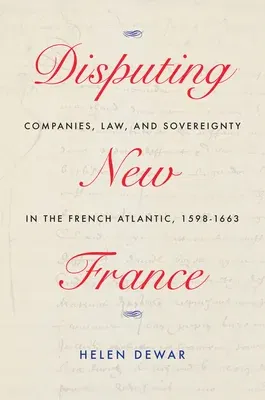From the early sixteenth century, thousands of fishermen-traders from
Basque, Breton, and Norman ports crossed the Atlantic each year to
engage in fishing, whaling, and fur trading, which they regarded as
their customary right. In the seventeenth century these rights were
challenged as France sought to establish an imperial presence in North
America, granting trading privileges to certain individuals and
companies to enforce its territorial and maritime claims. Bitter
conflicts ensued, precipitating more than two dozen lawsuits in French
courts over powers and privileges in New France. In Disputing New France
Helen Dewar demonstrates that empire formation in New France and state
formation in France were mutually constitutive. Through its exploration
of legal suits among privileged trading companies, independent traders,
viceroys, and missionaries, this book foregrounds the integral role of
French courts in the historical construction of authority in New France
and the fluid nature of legal, political, and commercial authority in
France itself. State and empire formation converged in the struggle over
sea power: control over New France was a means to consolidate maritime
authority at home and supervise major Atlantic trade routes. The colony
also became part of international experimentations with the chartered
company, an innovative Dutch and English instrument adapted by the
French to realize particular strategic, political, and maritime
objectives. Tracing the developing tools of governance, privilege
granting, and capital formation in New France, Disputing New France
offers a novel conception of empire - one that is messy and contingent,
responding to pressures from within and without, and deeply rooted in
metropolitan affairs.

